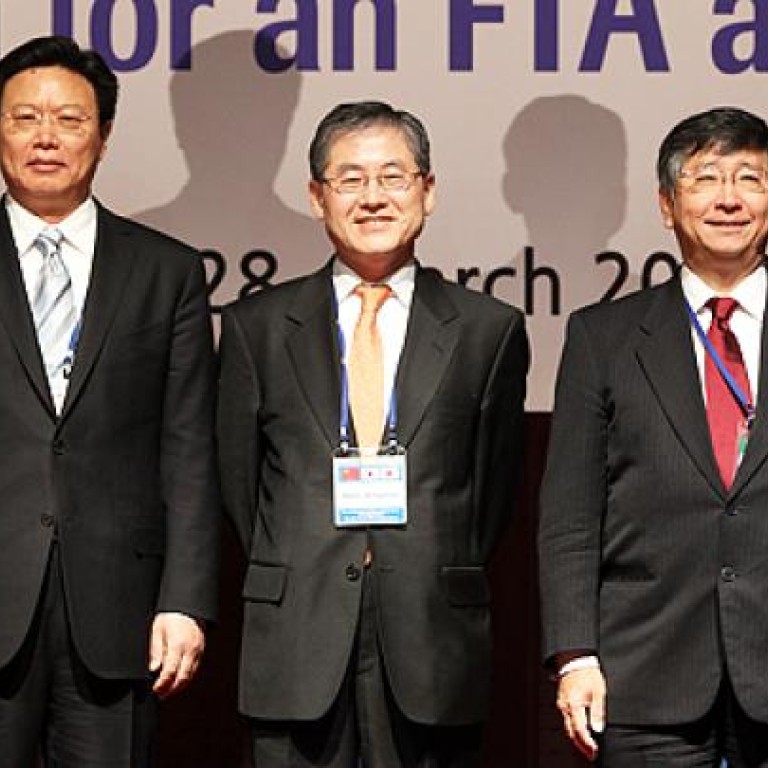
China, Japan, South Korea conclude first round trade talks
China, Japan and South Korea concluded a first round of talks on Thursday on securing a free trade pact to bind three economies that account for 20 per cent of global gross domestic product.
China, Japan and South Korea concluded a first round of talks on Thursday on securing a free trade pact to bind three economies that account for 20 per cent of global gross domestic product.
The three days of talks in Seoul that began on Tuesday were largely procedural, setting the agenda and scope of future negotiations when substantive trade issues will be discussed.
South Korean Deputy Trade Minister Choi Kyong-lim said the first round had laid a crucial foundation.
“I believe we were successful in establishing trust between negotiators from the three countries, which may play the most important role as negotiations move forward,” Choi told reporters.
With all three countries under new leadership, trade officials hope they can move beyond damaging territorial disputes that have dogged their relations for decades.
The idea of a trilateral free trade agreement (FTA) has been discussed for decades, but diplomats say China is now pushing especially hard for a pact, in part as a counter to US initiatives in Asia.
Washington is leading negotiations on a Trans-Pacific Partnership (TPP) free trade pact that some see as part of the so-called US “pivot” – aimed at reaffirming the US role in Asia in the face of China’s economic rise.
The TPP talks currently involve Australia, Brunei, Canada, Chile, Malaysia, Mexico, New Zealand, Peru, Singapore, the United States and Vietnam.
While China is conspicuously absent, new Japanese Prime Minister Shinzo Abe announced earlier this month Japan’s decision to participate in the TPP negotiations.
The second round of the trilateral FTA talks will be held in China in June or July, followed by a third round in Japan later in the year.
“Usually, it takes around one to three years at the least to conclude FTA talks with a large trading partner,” Choi said.
“But I think the ongoing talks may take some more time, considering the importance and size of the involved countries and the fact that they are three-way negotiations,” he added.
China, Japan and South Korea are now Asia’s largest, second-largest and fourth-largest economies, while trade volume between them amounted to US$690 billion in 2011.
Among other issues, the discussions are expected to hit opposition from Japanese and South Korean farmers worried about an inflow of cheaper agricultural products such as Chinese rice.
But the main hurdle lies in the form of bitter, long-standing territorial disputes that have raised diplomatic and military tensions and hampered economic cooperation.
China and Japan are arguing about sovereignty over an archipelago in the East China Sea, while Japan and South Korea have a historic dispute over ownership of islands in waters between the two countries.
